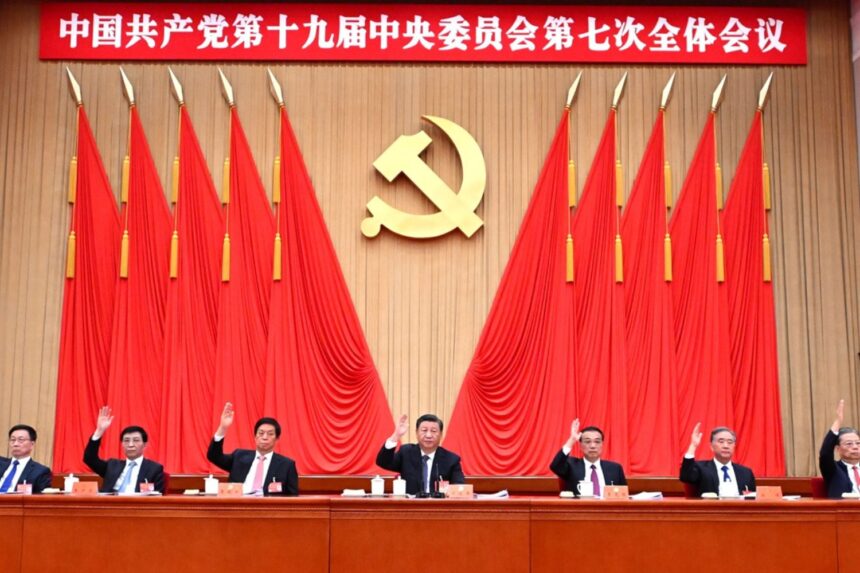A dialogue session between delegates from China and South Africa was conducted on Friday in Cape Town, South Africa. The session focused on the governance experience of the Communist Party of China (CPC) and provided an overview of the 3rd plenary session of the 20th CPC Central Committee. Held at the Chinese Consulate-General, the three-hour interactive session emphasized Chinese modernisation and its potential benefits for South Africa and the broader African continent.
The delegation from China included Wang Shaofeng, Secretary of the Fengtai District Committee of the Beijing Municipal Committee. Shaofeng emphasized the CPC’s commitment to enhancing services, education, and overall living standards in Beijing. He highlighted innovation as the main driver for economic growth and elaborated on plans to transform Beijing into a hub of innovation and takeaways that South Africa could draw from their projects.
China and South Africa have a historical relationship that dates back to the era of the liberation movement in the mid-20th century. During the apartheid era, China supported the African National Congress (ANC) in its struggle against apartheid, offering political, moral, and material support. This established a foundation of solidarity and mutual respect.
Diplomatic relations between China and South Africa were officially established on January 1, 1998. This marked the beginning of a new phase in their relationship, characterized by increasing political, economic, and cultural exchanges.
Over the years, economic relations have grown significantly. China has become South Africa’s largest trading partner, with trade volumes increasing exponentially. Major exports from South Africa to China include minerals, metals, and agricultural products, while imports from China include machinery, electronics, and textiles.
Today, China-South Africa relations are marked by strong economic cooperation. In 2023, bilateral trade reached new heights, with both countries benefiting from their complementary economic structures. South Africa continues to export a significant amount of raw materials to China, while importing a variety of manufactured goods. Investment flows have also increased, with Chinese companies investing in South Africa’s infrastructure, mining, and manufacturing sectors.
Jianchao discussed the significant roles BRICS countries play in areas such as food security, energy cooperation, and financial collaboration. He noted that BRICS is already playing a bigger role on platforms such as the G20, and pointed out that the world is undergoing profound changes characterized by increasing global cooperation. Jianchao underscored South Africa’s pivotal role in Africa and its potential leadership in renewable energy. He stated, “This is a perfect time for Africa to form a strategy on renewable energy. We’re looking at introducing our renewable energy technology to South Africa.”
China, as the world’s second-largest economy, plays a pivotal role in BRICS. It brings significant financial resources, technological expertise, and a vast market to the group. South Africa, though the smallest economy in BRICS, is a key player as the most advanced and diversified economy in Africa. Its inclusion in BRICS ensures representation of the African continent, adding to the group’s geographical and economic diversity.
UCT Internationalisation Director ,Quinton Johnson, facilitated a discussion on education, internationalisation, artificial intelligence, and innovation. Addressing the role of education in economic growth and modernisation, Johnson asked about the strategies to amplify and strengthen educational ties. Mr. Huang Qingjie responded, “Local governments must ensure efficient and effective education. The ultimate purpose of education is to build morale among the people and make them useful to society.”
Cultural and educational exchanges have also been an important aspect of China-South Africa relations. Programs and initiatives to promote mutual understanding and cooperation in education, science, and technology have been established, fostering people-to-people ties and enhancing cultural diplomacy.
Despite the strong relationship, there are challenges that need to be addressed. Trade imbalances and concerns about the impact of Chinese imports on local industries are ongoing issues. Additionally, there is a need for greater efforts to ensure that investments lead to sustainable development and local capacity building.
However, the relationship also presents numerous opportunities. As both countries navigate the complexities of the global economy, there is potential for collaboration in areas such as renewable energy, technology, and innovation. Strengthening people-to-people ties and enhancing mutual understanding will also contribute to a more resilient and dynamic partnership.
As BRICS members, China and South Africa have played significant roles in promoting economic cooperation, political dialogue, and cultural exchanges. Their collaboration within BRICS has not only strengthened bilateral relations but also contributed to the broader goals of the group.
ALSO READ: China strengthens military ties with African countries through “Peace Unity-2024” drill














Thank you for your sharing. I am worried that I lack creative ideas. It is your article that makes me full of hope. Thank you. But, I have a question, can you help me?